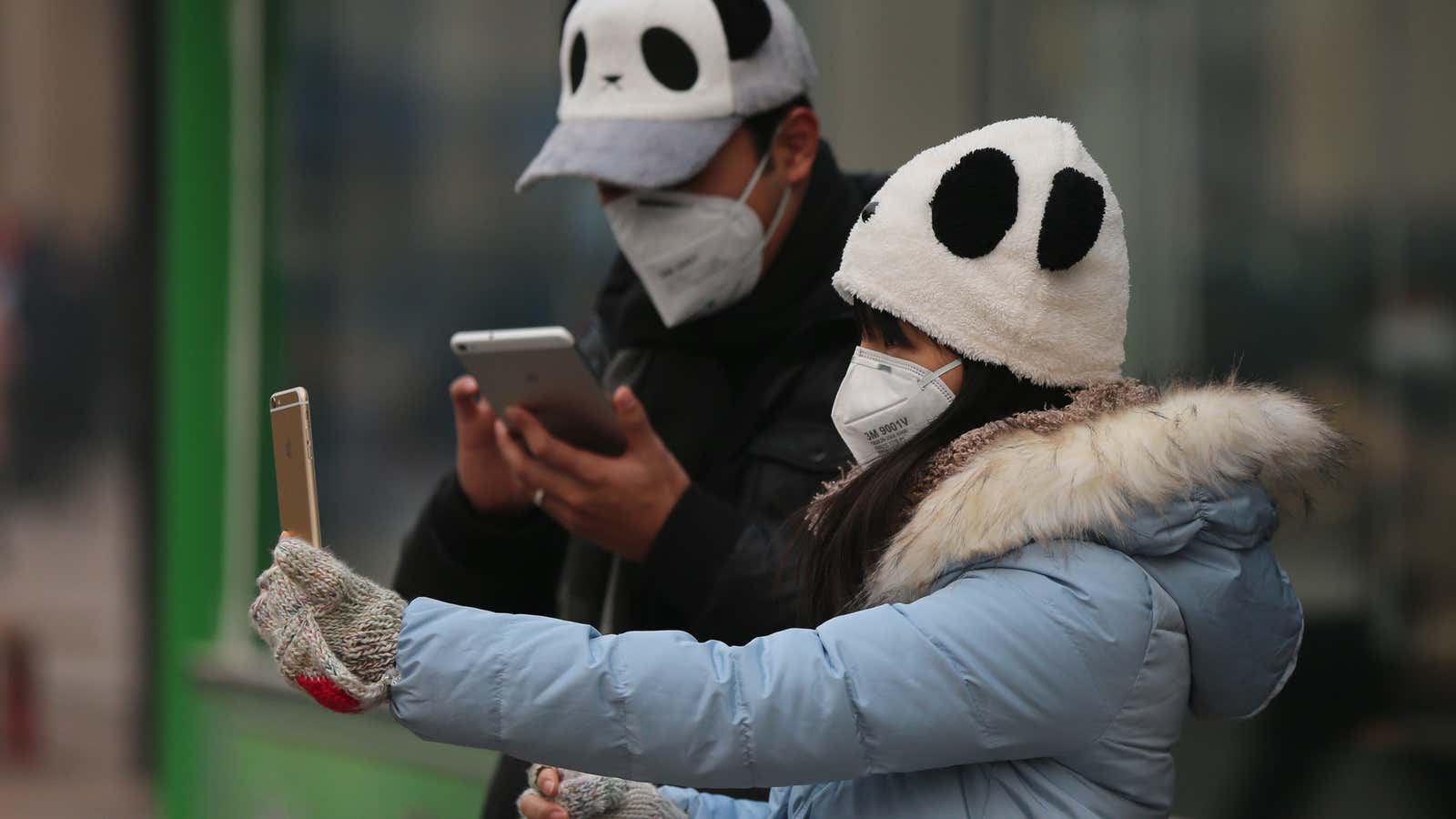Few doubt that Beijing’s notorious smog harms human health. In early 2013, the city’s air pollution was bad enough to hospitalize about 7,000 children a day due to respiratory ailments.
But the city’s smog contains more than just particulates. Scientists from the University of Gothenburg in Sweden found that, out of 864 DNA samples taken from humans, animals, and external environments worldwide, Beijing smog contained the highest richness of antibiotic-resistance genes (ARGs). Such genes have the “potential to be transferred to pathogens in the future,” their study notes.
“Notably, the Beijing smog metagenomes contained several resistance genes to carbapenems,” reads the study. That’s of particular concern, researcher Jaokim Larsson said on Nov. 18, since carbapenems are “the last resort” used to deal with the “difficult kind” of infections caused by bacteria.
For example, pneumonia, tuberculosis, blood poisoning, and gonorrhea are becoming harder to treat as antibiotics become less effective, according to the World Health Organization.
The government played down the matter, with state-run media quoting the Beijing Municipal Commission of Health and Family Planning.
In the Beijing News (link in Chinese), a Nov. 26 piece quoted a commission expert noting that the ARGs were different from bacterium. He added that the ARGs don’t make people ill, and that the human immune system can fight off most of the bacterium.
Never mind that the real issue is that “if the bacteria causes a disease and the bacteria carries ARGs, it would be harder to cure the disease,” as Larsson told the financial news outlet Caixin (link in Chinese).
Meanwhile an article today from the state newswire Xinhua, citing a study from the National Health and Family Planning Commission, said China saw double-digit percentage drops in the usage of antibiotics among both inpatients and outpatients between 2010 and 2015. Another reassuring article came from the People’s Daily on Nov. 25, saying that China is looking into replacing antibiotic therapy with traditional Chinese medicine.
Not all readers in China are buying it. On the social media platform Weibo, one commenter wrote (link in Chinese):
“The ARGs are not causing any disease. But when you are ill, the ARGs prevent medicine from curing you… Isn’t that terrible enough? Why are you confusing the concepts and acquitting the pollution? You’re all utterly devoid of conscience.”




